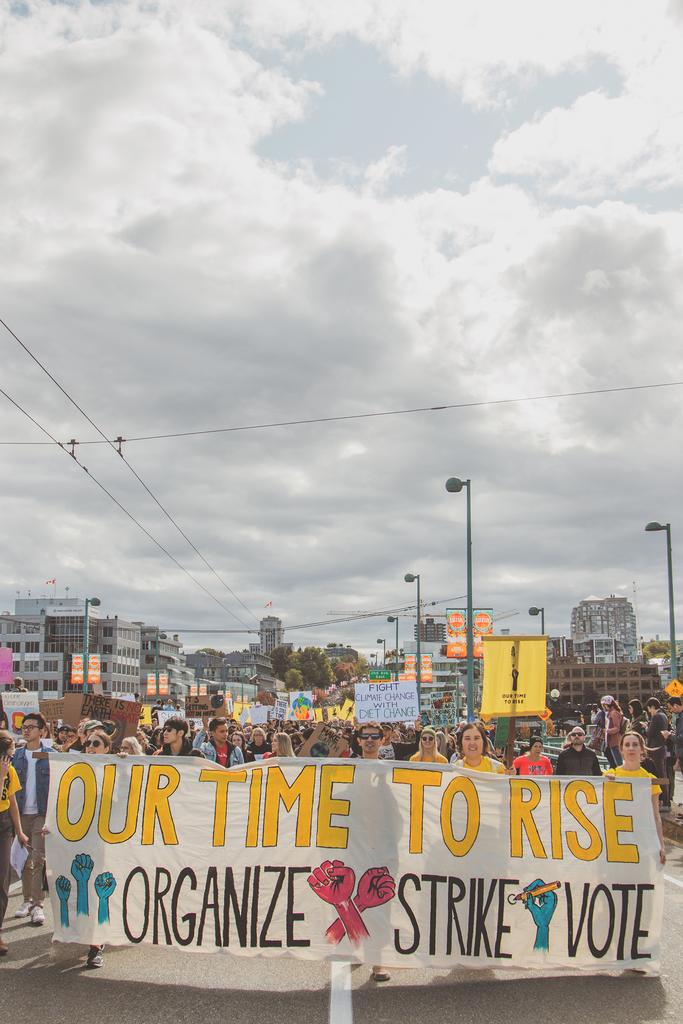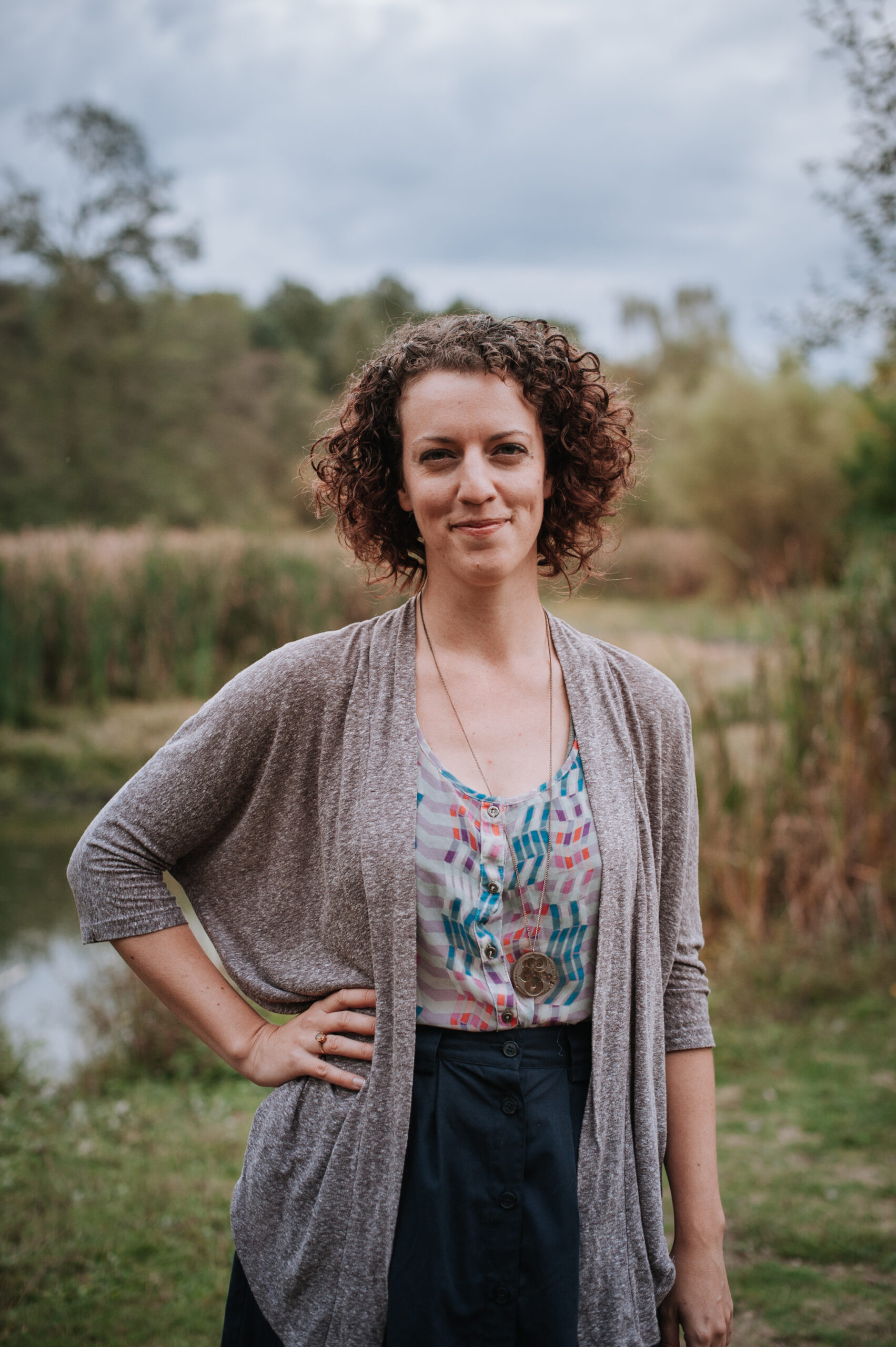Image by Desiree Wallace at the Vancouver Climate Strike
It’s election season. If your online world is anything like mine, that means your feeds are a never-ending sea of political videos, articles, and memes pulling your attention, energy, and vote in five different directions at once.
How do you approach your one and only chance to express your democratic rights when there’s so much to take into account?
Given the options–between our electoral system and rampant dishonesty in politics–it might feel like there’s no point.
“I think government action is essential. It’s the most important mechanism we have to regulate corporate but also collective behaviour,” says Dr. Candis Callison on the question of choosing our leaders. An Associate Professor in the Graduate School of Journalism and the Institute for Indigenous Studies at UBC, Dr. Callison has focused her work on how the public comes to understand and care about issues like climate change and Indigenous rights.
“People are paying attention, including the political leaders,” she says on election season, “And politicians get away with a lot by saying, ‘this is what the public wants.’… By asking the hard questions at a time when more people are paying attention supports more and different kinds of social action and social groups who are trying to push things forward and people who are trying to make new policies.”
Nayeli Jimenez, a Vancouver-based climate justice organizer who works with 350 Vancouver and Our Time, is completely on board with the importance of stepping up during an election, no matter how hopeless change may seem.
“Democracy is still something that is extremely important to participate in,” she says, “It’s not just about you individually, it’s about who is in power to affect vulnerable communities and those voices that cannot vote. I think that’s definitely the first most important thing: recognizing that we have the power to show up.”
Thanks to our electoral system in Canada, there are a few extra layers to take into account with our voting choices. While we are technically electing our local representatives, many people consider not only that representative’s party as a whole, but what leader they might be electing Prime Minister with their vote.

“It really sucks to be forced into strategic voting and I think there’s a lot of value in voting for the right candidate in your riding. They are your representative, you want to make sure that you trust them,” says Jimenez, “you still need those strategic people in the house.”
This is the focus of Jimenez’s work with Our Time: finding candidates who will support comprehensive climate change through the Canadian version of a Green New Deal, a policy initiative that looks at climate change intersectionally, ensuring that those who are most impacted by both climate change and the shift away from fossil fuels are protected moving forward.
While she didn’t speak directly to the Green New Deal, this integrated approach to climate justice is matched by Dr. Callison: “I think it’s problematic how separate we keep our discourse. Our questions about economics and then resources, and all these things that don’t recognize that we are living in a present and a future with climate change. In the same way that Indigenous issues get bracketed off, when in fact Indigenous people are often at the forefront of climate change and the forefront of resource development as well.”
Dr. Callison and Jimenez also agree about the fact that, while voting is incredibly important, it can’t be the only thing we do. After all, politics and broken promises go hand-in-hand and so accountability is key.
“Unfortunately, we see time and again, [that] we get promised things that sound like a good climate plan or proposals and then we are disappointed by the inaction of government and the excuses and lip service, and we don’t have time,” says Jimenez.
Instead of giving up, however, “what you can do is begin with accountability questions,” says Dr. Callison. “Begin with some social movements and start to determine what we think the metrics of success will be for any party who gets in.”
Then, after the election is over, keep pushing. Keep asking questions. Stick with it.
“Usually [accountability] falls on those communities that are facing the impacts the most,” says Jimenez, “and instead of them being recognized for that work it’s either criminalized or unrecognized. It’s a matter of us being allies to those people and being like, ‘hey we are going to help them push and hold them accountable to the thing they promised would happen.’”
This may sound like a lot. After all, there are so many issues and so many communities that are hurting and need support. Not only is it a lot to try to keep in balance when you cast your vote (so far there doesn’t seem to be many candidates who have plans that are both feasible and strong on climate change, the economy, education, feminism, racial justice, Indigenous justice, and everything else), but how do you keep up after the election is over? Do you just quit your job and become a full-time protester?
With that kind of pressure, it can be pretty easy to feel like giving up, but Jimenez and Dr. Callison share a different idea: pick one issue that you connect with, and get involved there.
“It doesn’t matter if your passion is plastic in the ocean, gender equality, justice, or Indigenous rights,” says Jimenez, “I think there’s a place for everyone and if you find that group that inspires you to take action, we need everyone on board and all skills are extremely valuable in this movement.”
“There’s a range of opportunities for people to become involved and I think that’s the thing you have to do is think about where and when your contribution can matter,” says Dr. Callison, “Where you want to put your energy. Because people do have energies to put towards this, it’s just a matter of deciding where to put it best.”
First things first, there’s an election this month. If you haven’t already, look up your local candidates. If no one has asked them about the issues you care about, you can do it! Publicly, if at all possible. Then, cast your vote.




